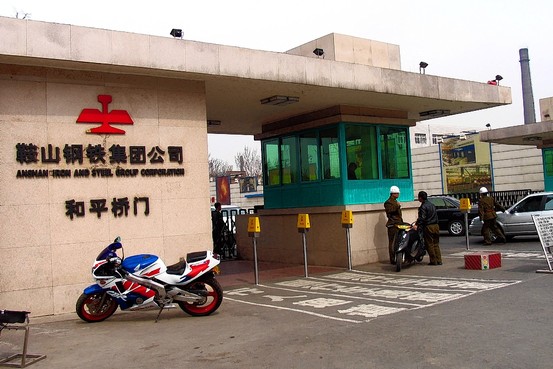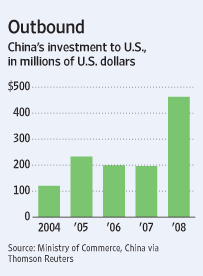 WSJ story: China's Anshan Iron & Steel Groups says it will invest in as many as 5 US production mills owned by a Mississippi company.
WSJ story: China's Anshan Iron & Steel Groups says it will invest in as many as 5 US production mills owned by a Mississippi company.
 It's a small move by a big (#6 in world) player, "but the deal appears to carry political overtones, coming as Beijing puts emphasis on outbound investment as a spark for economic activity elsewhere."
It's a small move by a big (#6 in world) player, "but the deal appears to carry political overtones, coming as Beijing puts emphasis on outbound investment as a spark for economic activity elsewhere."
That's the lesson Japan had to learn years ago, and China appears to be moving in this direction with much faster speed. It's a real credit to them and a good sign overall.
I've told this story on China for a couple years now in the brief: Japanese cars used to be keyed in Indiana parking lots years ago. Why? This is Big 3 production territory. It doesn't happen today. Why? Toyota and Honda have IN plants now.
Read this from the print story:
Last week, a government official in Beijing suggested China's steelmakers could learn from Japanese auto makers, which in the 1980s responded to complaints about their imports by opening U.S. plants. Jia Yingson, of the Ministry of Industry and Information Technology, said Chinese steel production in the U.S. would help the industry sidestep rising trade barriers . . .
And from the online version:
In the 1980s, Japanese car makers faced the kind of political and popular resentment about imports in the U.S. that much of Chinese industry is up against today. To ease some of the tension, Japan engineered a considerable higher yen exchange rate while companies such asToyota Motor Corp. built U.S. plants so their cars could be labeled "Made in America, by Americans."
Our pushback forced Japanese companies to evolve from national flagships to truly globally integrated enterprises (IBM CEO Sam Palmisano's term). No doubt the same learning curve happens here. Bigger question is whether Africa can do the same vis-a-vis China. But even there, I remain optimistic.
Again, very pleasing to see. You go around spouting this stuff for years, wondering when it'll happen or if you'll be proven "naive," and then the economics shapes the political decision-making and even deeper economic connectivity and evolution results.
And everything old is new again.